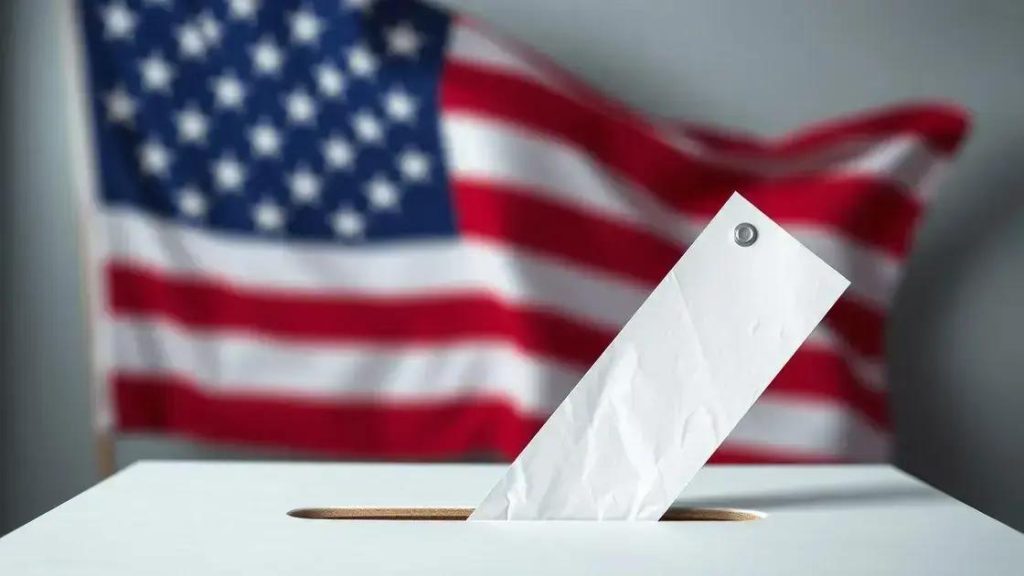New bill passed by House mandates citizenship verification for voting

Anúncios
The new bill mandating citizenship verification for voting aims to enhance election integrity but poses challenges by potentially disenfranchising eligible voters and impacting voter turnout in upcoming elections.
The new bill passed by House mandates citizenship verification for voting, sparking discussions about election integrity and accessibility. But what does this mean for voters and the electoral process? Let’s dive in.
Anúncios
Understanding the new bill and its implications
The new bill passed by the House is a significant move towards ensuring election integrity. It may sound complex, but it has clear implications for voters and the electoral process.
This legislation mandates citizenship verification for voting, which means that individuals must confirm their citizenship before they can register to vote. Such a measure aims to prevent fraudulent voting and enhance public confidence in the election system. But how does this impact various aspects of voter registration?
Anúncios
Impact on Voter Registration
One main area affected is the voter registration process itself. With the new bill, states will need to implement systems to verify citizenship efficiently. This could lead to several changes:
- Longer registration processes as verification checks are integrated.
- Potential barriers for eligible voters who may struggle to provide necessary documentation.
- Increased state responsibilities in managing voter databases.
Voter education will also become crucial. Citizens need to understand what documents are required for verification and how to navigate the new processes. As this bill evolves, community outreach will play a key role in helping people adapt.
Public Reaction and Concerns
There are mixed reactions to the new citizenship verification mandate. While some applaud it as a necessary step towards clean elections, others worry it might disenfranchise eligible voters. Advocacy groups are particularly concerned about the impact on marginalized communities.
The discourse around this bill reveals deeper societal issues. Implementation could either fortify trust in electoral outcomes or create new challenges that diminish electoral participation. Monitoring the effects of this legislation will be essential as we move closer to the next election.
How the bill affects voter registration processes
The passage of the new bill has significant implications for voter registration processes. With the requirement for citizenship verification, changes are expected that will affect how citizens register to vote.
States will now need to ensure that every person registering to vote can provide evidence of their citizenship. This may lead to a more complicated registration process, as individuals will be required to submit certain documents. For example, a birth certificate, passport, or naturalization certificate may be necessary.
Changes in Registration Procedures
These changes will likely lead to several key developments in the registration process:
- Increased paperwork for registrants as they must provide proof of citizenship.
- Potential delays in processing registrations due to additional verification steps.
- More stringent audits of voter rolls to ensure compliance with the new law.
Furthermore, educational efforts will be crucial. Voters need clear instructions on what documents are required for registration. Outreach campaigns could assist in informing communities about the new requirements.
Challenges and Considerations
While the intention of the bill may be to strengthen election integrity, it raises certain challenges. For instance, some eligible voters may struggle to access the necessary documents. Those from low-income backgrounds may find it especially difficult.
As states implement these changes, monitoring the impacts on voter registration rates will be important. The balance between maintaining electoral integrity and ensuring accessibility for all eligible citizens is delicate. The upcoming elections will serve as a key indicator of how effectively these new measures are working.
Challenges regarding citizenship verification

As the new bill mandates citizenship verification for voting, several challenges have emerged that could affect both voters and the electoral process. Understanding these challenges is vital for ensuring that the implementation of this law goes smoothly.
One major challenge is the variety of acceptable proof of citizenship. Different states may have different requirements, which could lead to confusion among voters. Many individuals might not know what documents are needed. For instance, a person might need a birth certificate or a naturalization document, but not everyone keeps such items readily accessible.
Potential Barriers for Voters
This creates potential barriers for eligible voters, particularly among marginalized groups. Some challenges include:
- Lack of access to necessary documents, especially for low-income individuals.
- Time limitations for gathering documents before registration deadlines.
- Increased anxiety about the registration process, leading to lower participation rates.
Moreover, many people may struggle with understanding the new rules. Education and outreach programs will be essential to help individuals navigate the verification process.
Impact on Voter Turnout
Another significant concern is how these verification requirements could impact voter turnout. With new regulations in place, some registered voters may find themselves unable to vote due to lack of documentation. This could disproportionately affect communities that already face obstacles to participation.
As states explore how to implement the new verification processes, transparency in communication will be crucial to ease public concern. Ensuring that voters have the right information is essential for fostering trust in the electoral system and encouraging higher participation rates.
Reactions from lawmakers and advocacy groups
The new bill requiring citizenship verification for voting has elicited varied reactions from lawmakers and advocacy groups. These responses highlight the complex landscape of opinions surrounding the legislation.
Lawmakers are divided on the effectiveness and necessity of the bill. Some legislators argue that this bill will improve election integrity by ensuring that only eligible citizens can vote. They believe that verification processes will help maintain public trust in the electoral system. On the other hand, some lawmakers express concern over the potential disenfranchisement of voters. They fear that the requirements may create barriers that disproportionately affect minority communities and low-income individuals.
Advocacy Group Concerns
Advocacy groups are also vocal about their positions. Many civil rights organizations oppose the bill, arguing that it could lead to unfair practices that restrict voting access. They emphasize:
- The potential for increased voter disenfranchisement among eligible voters.
- Concerns regarding the adequacy of outreach efforts to inform communities about the new requirements.
- The likelihood that these regulations may exacerbate existing inequalities in the electoral process.
Conversely, some advocacy groups support the legislation, claiming that measures promoting election integrity are essential. They argue that establishing clear criteria for voting will help eliminate fraudulent activities and make the electoral process more transparent.
As the implementation of this bill unfolds, monitoring its effects and gathering feedback from both lawmakers and advocacy groups will be crucial. Understanding the range of reactions can help shape future policies aimed at improving voter access and election security.
Potential impact on upcoming elections
The recent bill that mandates citizenship verification for voting is poised to have significant implications for upcoming elections. Understanding these potential impacts is essential for voters, lawmakers, and advocacy groups alike.
One major concern is how this verification process will affect voter participation. Many eligible voters may find themselves unable to register or vote due to the new requirements. This could lead to lower turnout rates, especially among communities that already face barriers to access.
Changes in Voter Demographics
Election demographics might shift as a result. With stricter verification, specific groups may be disproportionately affected. For instance:
- Minority communities that often encounter challenges in obtaining necessary documentation.
- Young voters who may not have access to traditional IDs.
- Low-income individuals who may lack the means to gather the required paperwork.
In light of these challenges, it’s critical for election officials to implement outreach strategies that engage voters. Educating the public about new processes can mitigate confusion and encourage participation.
Concerns About Fraud and Trust
While some view the bill as a step toward election integrity, it raises questions about public trust. Many will be watching how effectively the verification system operates during the elections. If implemented smoothly, it may enhance trust in the electoral process. However, if difficulties arise, it could lead to increased skepticism about the legitimacy of election outcomes.
Monitoring these results will be essential for future legislation and voter rights protections. The interplay between security and access will remain a pressing concern for policymakers as they evaluate the effectiveness of the new voting regulations.





